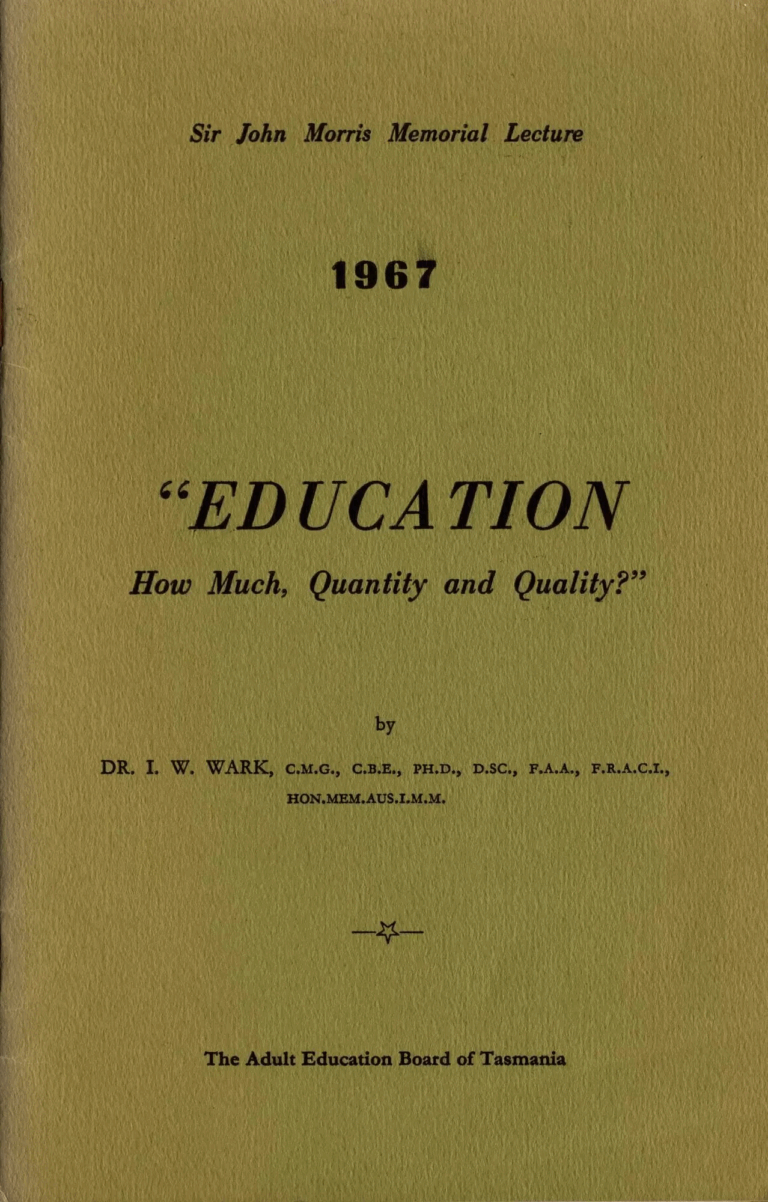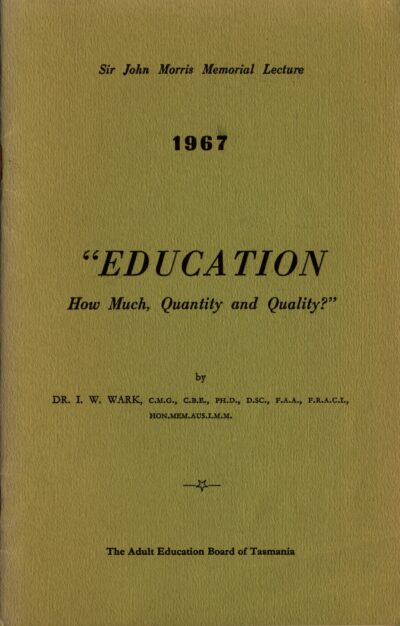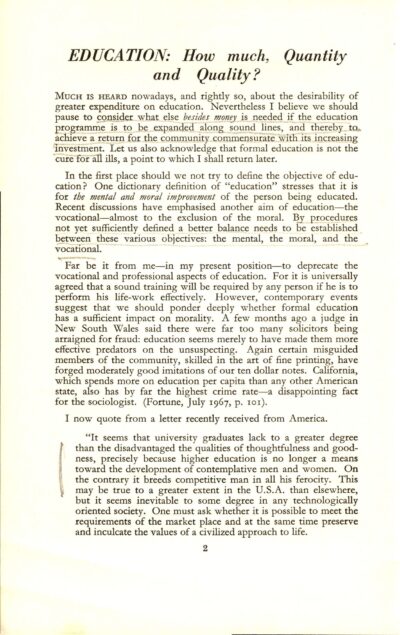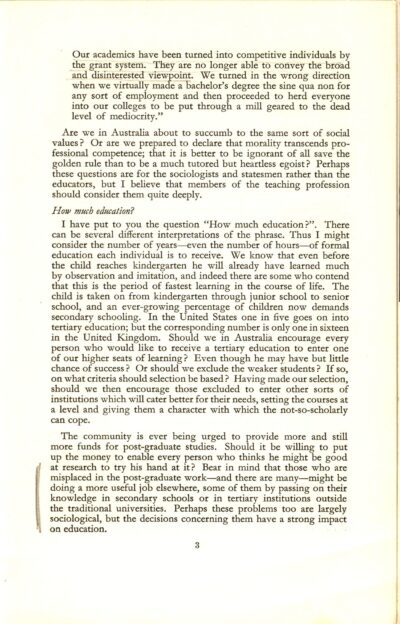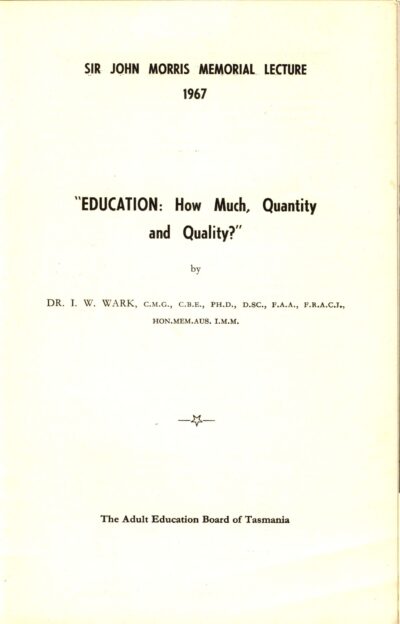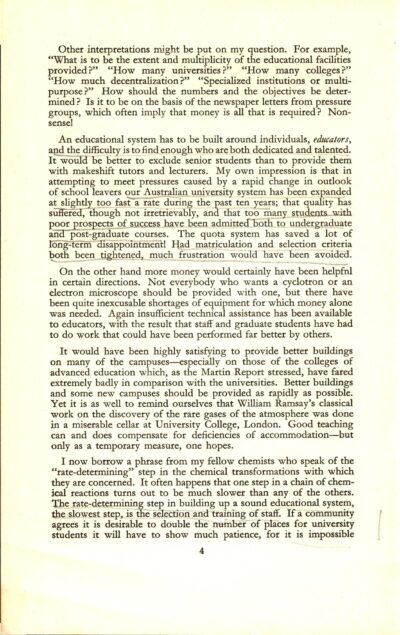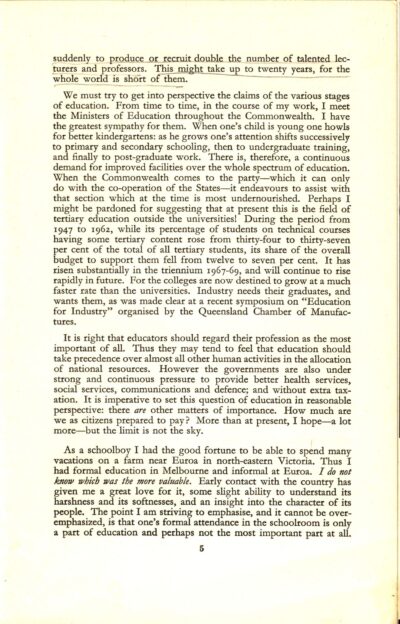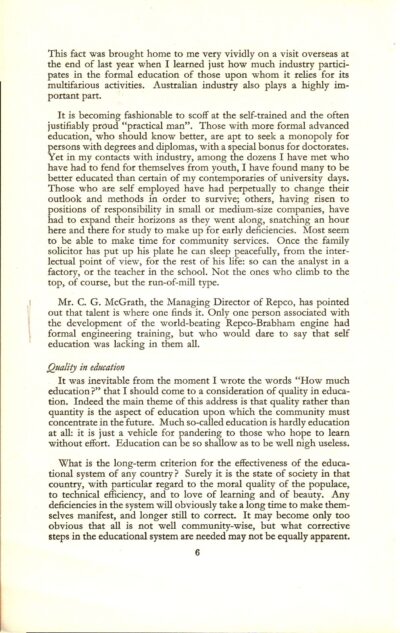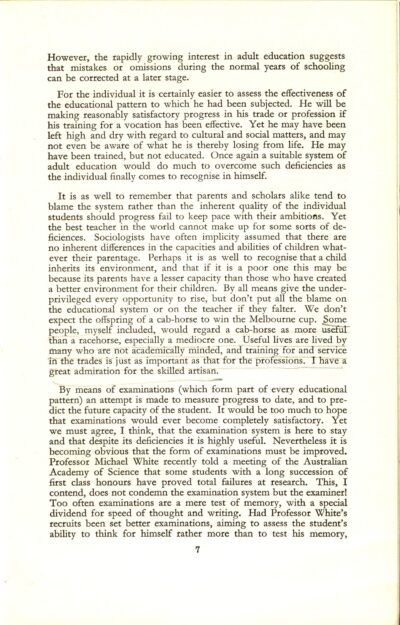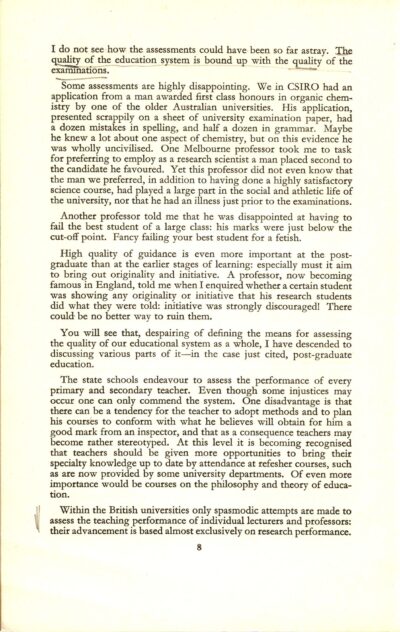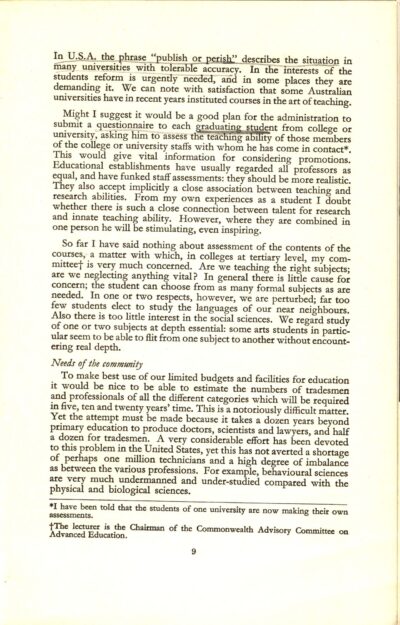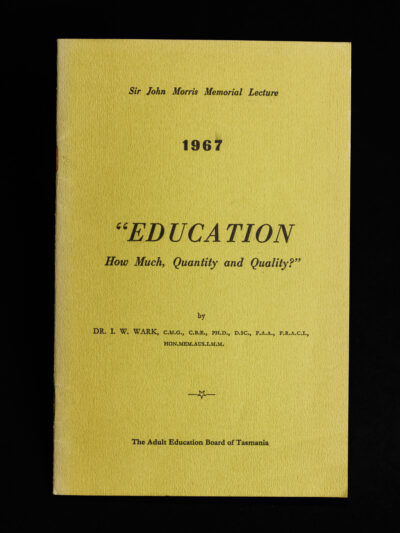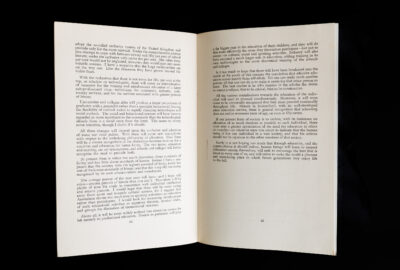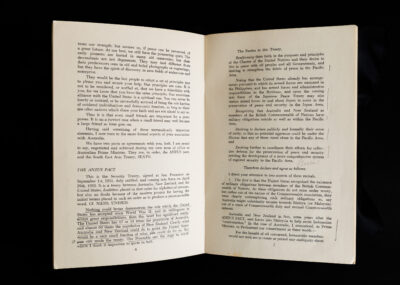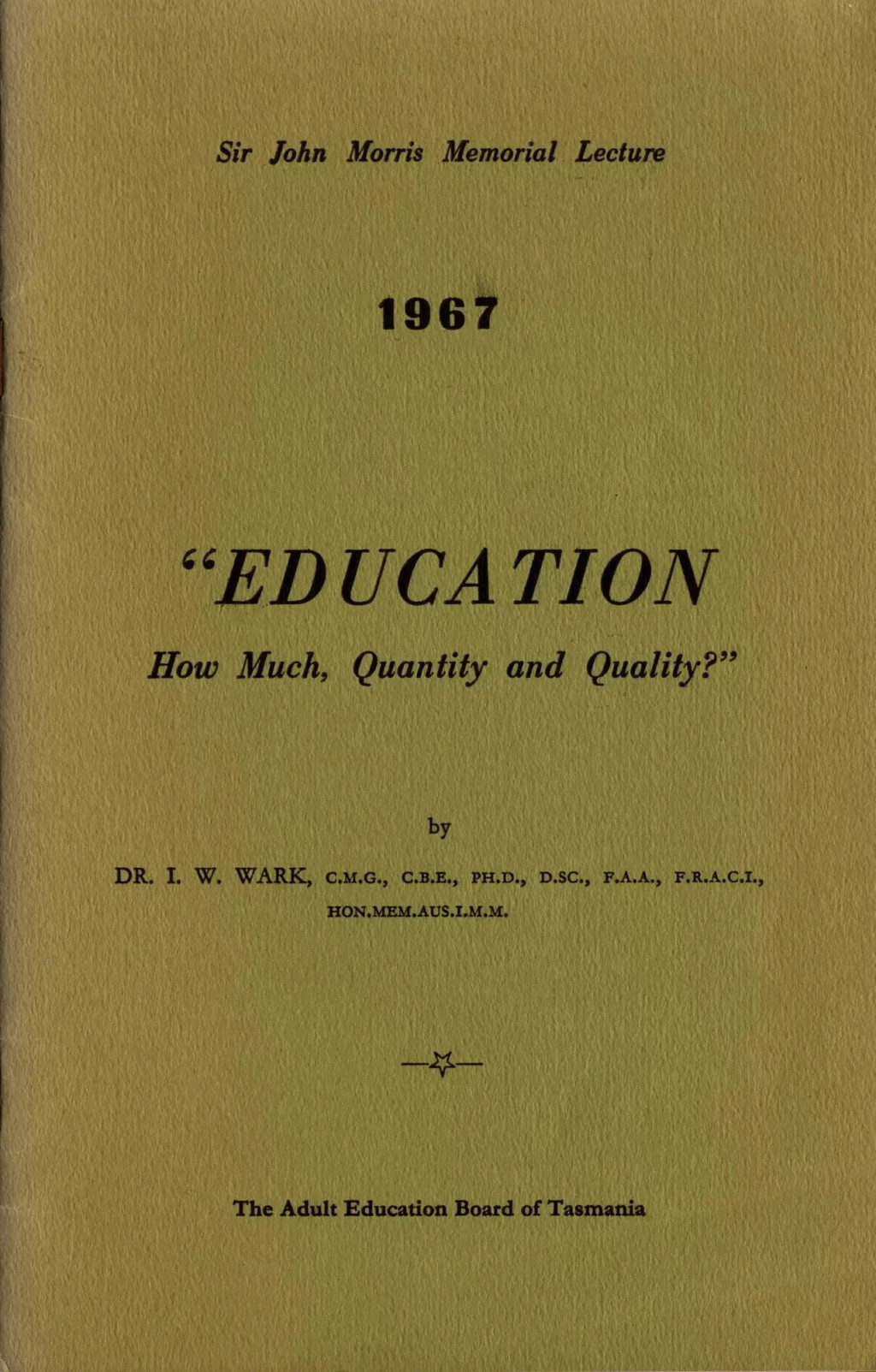Ian William Wark, Education: How Much, Quantity and Quality? (1967)
Robert Menzies oversaw a major expansion of Australia’s university system, an achievement of great personal significance that he once suggested made an otherwise arduous political career worthwhile. But would he have been happy with how Australia’s university system has turned out?
There is no doubt that Menzies wanted to increase access to university education. He had to win one of just a handful of available scholarships to secure the privilege of attending the University of Melbourne in the 1910s. An opportunity he sought to extend through the introduction of a comprehensive system of Commonwealth Scholarships, which gave widespread access to tertiary education to those with the talent and drive to pursue it.
Menzies was clear that university education was about more than vocational training; it was meant to inculcate in students a lifelong love of learning, a perpetual search for truth, and an appreciation of values greater than the accumulation of money. All of which he felt he had developed during his time spent on the Parkville campus. But he was equally aware that as the universities rapidly expanded, they lost some of the intimacy and magic that had made them so special in the first place. Hence why in the 1960s, the Menzies Government set up a system of Colleges of Advanced education, to take some of the pressure off of the university system in meeting what was a vastly increased demand for higher education.
However, even with this scheme, there is reason to believe that Menzies still had fears about the ongoing transformation of the Australian university system into homogenous degree factories. And this is evidenced by his underlining of some key passages in I.W. Wark’s Education: How Much, Quantity and Quality? An exploration of some of the challenges faced by Australian universities in the late 60s, given by one of the nation’s leading chemists, whom Menzies had appointed as chair of the Commonwealth Advisory Committee on Advanced Education in 1965.
Originally presented as a Sir John Morris Memorial Lecture at the University of Tasmania, the book seeks to find a ‘better balance’ between the mental, moral and vocational objectives of the Higher Education industry. Important passages cover such issues as:
· Competition for grants funding between academics making them more self-interested, and less likely to convey a broad and disinterested viewpoint.
· What would now be called ‘degree inflation’, whereby a bachelor’s degree was becoming a prerequisite for much white collar employment, rather than something to be pursued by truly gifted and driven individuals. Resulting in the herding of ‘everyone into our colleges to be put through a mill geared towards the dead level of mediocrity’.
· Students with lower academic standards being admitted, resulting in high failure rates and in the long term a lowering of testing standards.
· A rush to find new lecturers to meet the increasing student numbers. Resulting in less brilliant professors being employed and class sizes expanding beyond the capacity to develop an essential mentoring relationship.
· An increasing snobbery towards self-trained and practical people, who make an important contribution to society even without a university degree.
You might also like...
Sign up to our newsletter
Sign up for our monthly newsletter to hear the latest news and receive information about upcoming events.

